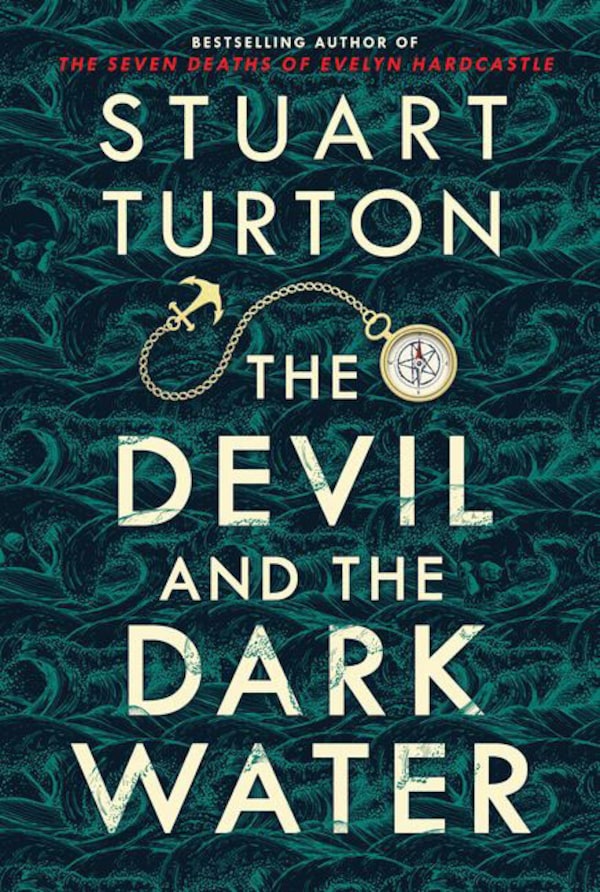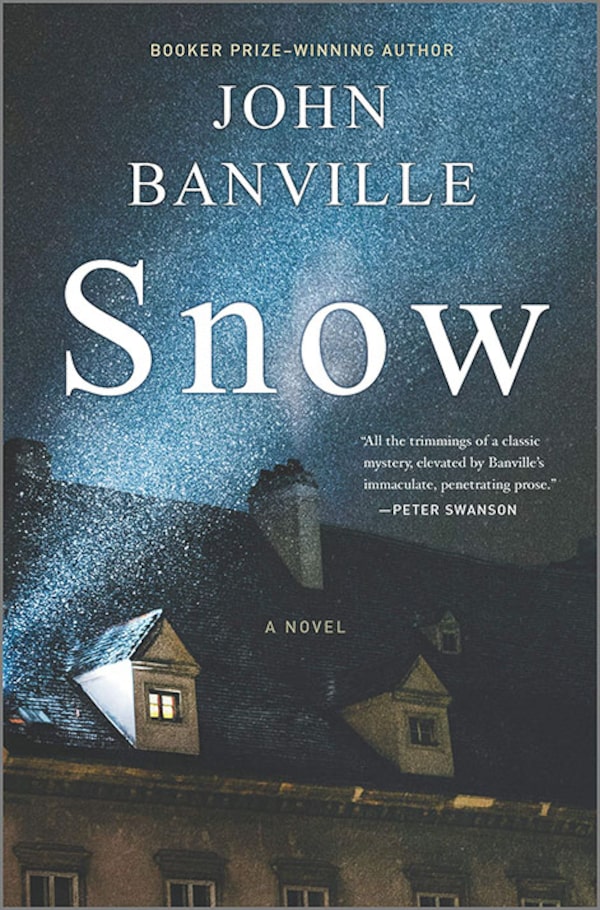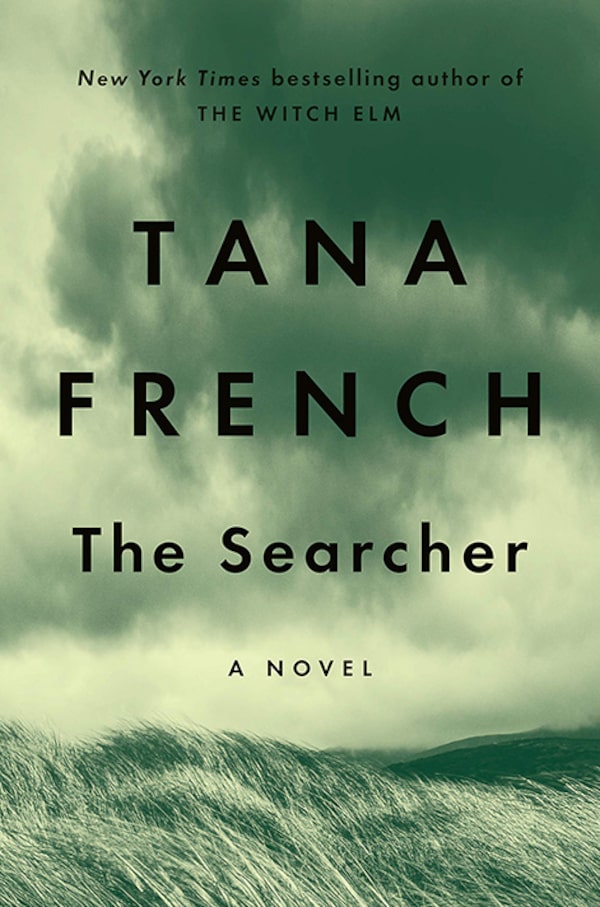The Adventures of Isabel, Candas Jane Dorsey (ECW Press, 220 pages)

handout
Our narrator is broke, unemployed, unkempt and generally ready for anything. So when her grandmother hires her to find the killer of a young girl whom she’s convinced the police won’t bother with, there’s only one way forward. As a social worker, our heroine knows her way around the city, is able to navigate the byways of the sex trade and has connections in low places, which makes for an interesting take on the investigation.
But just writing a mystery isn’t what Edmonton author Candas Jane Dorsey is interested in. This is a post-modern mystery, which means it has lots of twists that have nothing to do with the story. The narrator speaks out of the plotline, goes on wordy rambles, plays clever games with grammar and generally hypes up the style.
Readers who want a classic mystery will not love the asides and the snark, but Dorsey has a firm grip on her character. Let’s hope that the second in the series will have more mystery in it.
The Devil And The Dark Water, Stuart Turton (HarperCollins, 465 pages)

handout
The first thing to realize is that this book is a sequel. Before I’d finished the first chapter, I was racing to get the first Sammy Pipps novel, The Seven Deaths of Evelyn Hardcastle, so that I could fill in the backstory. It’s not essential, but Turton gives just enough clues in his second book to make reading the first irresistible. I devoured both books in one weekend.
Devil begins in Batavia, the Dutch East Indies. The year is 1634, and the United East India Company is the richest trading company in the world. A ship, the Saardam, is about to set sail for Amsterdam, half a world away. The trip will take eight months, and the dangers are great. But the Saardam has special fears. A leper calls out a curse and then perishes in a column of fire, but the leper has no tongue and couldn’t speak.
Samuel Pipps and his bodyguard Arent are on board but not as mere travellers; Sammy is manacled in a tiny dark hole, en route to Amsterdam to be tried and executed. He doesn’t know why, but references to his “crime” are terrifying. Arent wants to save his companion but doesn’t have Sammy’s gifts for detection. Someone else on the ship, however, does, and she also has a vested interest in Sammy Pipps’s gifts. She fears that the ship and its passengers are doomed, including her beloved daughter, so she’s willing to help solve the mystery. This is a fabulous tale told by a writer who knows his history and his suspense. Save it for a day when you won’t be disturbed.
Snow, John Banville (Hanover Square Press, 305 pages)

handout
The great Irish novelist John Banville has decided that he no longer needs a nom de plume (Benjamin Black) for his wonderful mystery novels, so here he is publishing in plain sight. Snow is easily one of his best – and one of the very best mysteries of this or any other year. Quirke, the heavy-drinking doctor from his series, appears here only briefly. This novel is a country-house murder and as wonderful a one as has ever been served up.
The body is essential, and it is, of course, located in the library of the manor house. The Irish countryside is verdant, and it’s the oppressive 1950s. The dead man, obviously murdered and mutilated, is a local priest, a guest of the manor. Detective St. John (pronounced “sinjun”) Strafford is in charge, and the first issue is clear: This is Catholic Ireland, and priests are not murdered. Could this be a suicide or an accident? Since Strafford is interested in solving the case, rather than covering it up, he can expect no help from the family or his superiors.
Banville manages a morality tale, a whodunit and a tightly constructed novel with exquisite sentences. Eventually who killed the priest becomes less important than Strafford’s battle against the forces of church and state. I particularly loved the way the characters all play their parts from the snotty colonel to the batty wife – and with just a slight dose of Quirke, it was perfection.
The Searcher, by Tana French (Penguin Random House, 464 pages)

handout
The publicist is billing this novel as an Irish Western, and while there is a touch of sagebrush in the story of a retired American policeman mentoring a young child in rural Ireland, Tana French is too tied to her Irish roots for that. But it is in the western part of Eire, and rifles are used, so she’s partially there, and besides, it’s such a great story that no one will really care a jot about it being a western.
Cal Hooper retired and fled to his rundown cottage in Ardnakelty after his marriage has collapsed. His daughter, who lives far away in Seattle, is estranged, and he spends his days scraping old wallpaper and patching the roof. In the evenings, he joins the local men at the pub for talk, cards and drink. Then Trey comes to him – at first just hanging about – then asking for help to find a lost brother who may have been kidnapped. Trey’s family is the poorest in the village, abandoned by the father and neglected by the mother. At first, it seems clear that the brother ran off to find a better life, but Trey is convinced he would have left word if that had been the case.
Cal agrees to investigate, but with no badge, gun or backup, he’s at a distinct disadvantage. He’s also an outsider, and the villagers, who have their own tangled histories, aren’t about to give him any information. All this background makes for a mesmerizing tale in a fantastic setting.
A Small Town, Thomas Perry (Grove Atlantic, 352 pages)

handout
Weldonville is a small town that, like so many other small towns, lost its industry and ended up as the site of a prison – originally designed for white-collar criminals, it’s become a depository for the worst and worse. But since it pays all the locals' bills, it’s tolerated. Leah Hawkins is a lifelong resident of Weldonville who was an all-star player for the local basketball team. She eventually joined the local police force because she believed in justice and small-town values. That all ends in one hideous and terrifying night that leaves Weldonville burned and bleeding.
Fans of Thomas Perry know that he is, at all times, precise. Events happen and consequences follow, and that’s part of the joy of reading his superb Jane Whitfield series. This stand-alone is even better and owes more to his brilliant novel, The Burglar, because tall, quiet Leah Hawkins is about to become a one-woman vigilante, armed with just her smarts and a million dollars from the Weldonville City Council. Two years after Weldonville was smashed in a brilliantly orchestrated prison breakout and riot, the town has still not recovered – Leah lost her boss, her best friend and her lover all in one night. Now she’s the chief of police, and the 12 men who planned and carried out the prison break have never been found. Leah has a year to find them and kill them.
White Ivy, Susie Yang (Simon & Schuster, 352 pages)

handout
When I started this excellent debut novel, I thought it was going to be another version of the much-lauded Korean film Parasite – a clever girl insinuates herself into a wealthy Boston family and begins to destroy them. That’s the surface tale that comes with the novel, but it’s far more than that, and Yang, a writer of talent and intelligence, lets those quality shine through.
Ivy Lin is a bad girl; she steals and lies and is definitely not the obedient daughter her hard-working immigrant parents want. Ivy is also infatuated with Gideon Speyer, the son of a wealthy family and the quintessential “golden boy” of her school. She will do anything to attract Gideon’s attention and, hopefully, his affection. But the likes of the Speyer family are not for an immigrant Chinese girl, and Ivy is forced to hide her longings and live the life of the good daughter. When Ivy fails, her parents send her to China as both punishment and lesson. There Ivy’s grandmother sees her unhappiness and shows her how to achieve the things she thinks she wants.
Years later, Ivy encounters the Speyer family again, and things have changed. Ivy is young and restless and her chance run-in with Gideon’s sister seems like fate. This time, she will be the winner, and so she begins to worm her way into the Speyers' lives,through dinners and teas and talks late at night. Yang has written a first-rate psychological novel with an intriguing and memorable heroine. This is definitely a writer to watch.
Expand your mind and build your reading list with the Books newsletter. Sign up today.